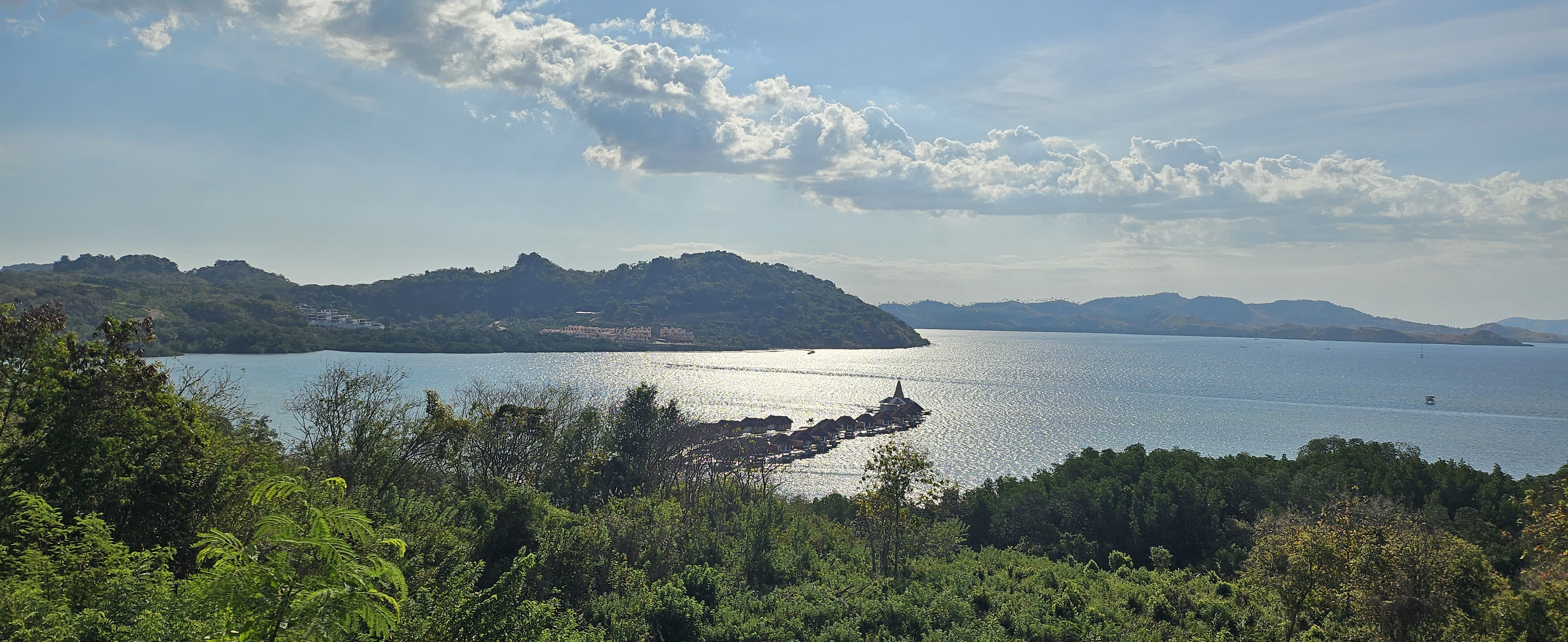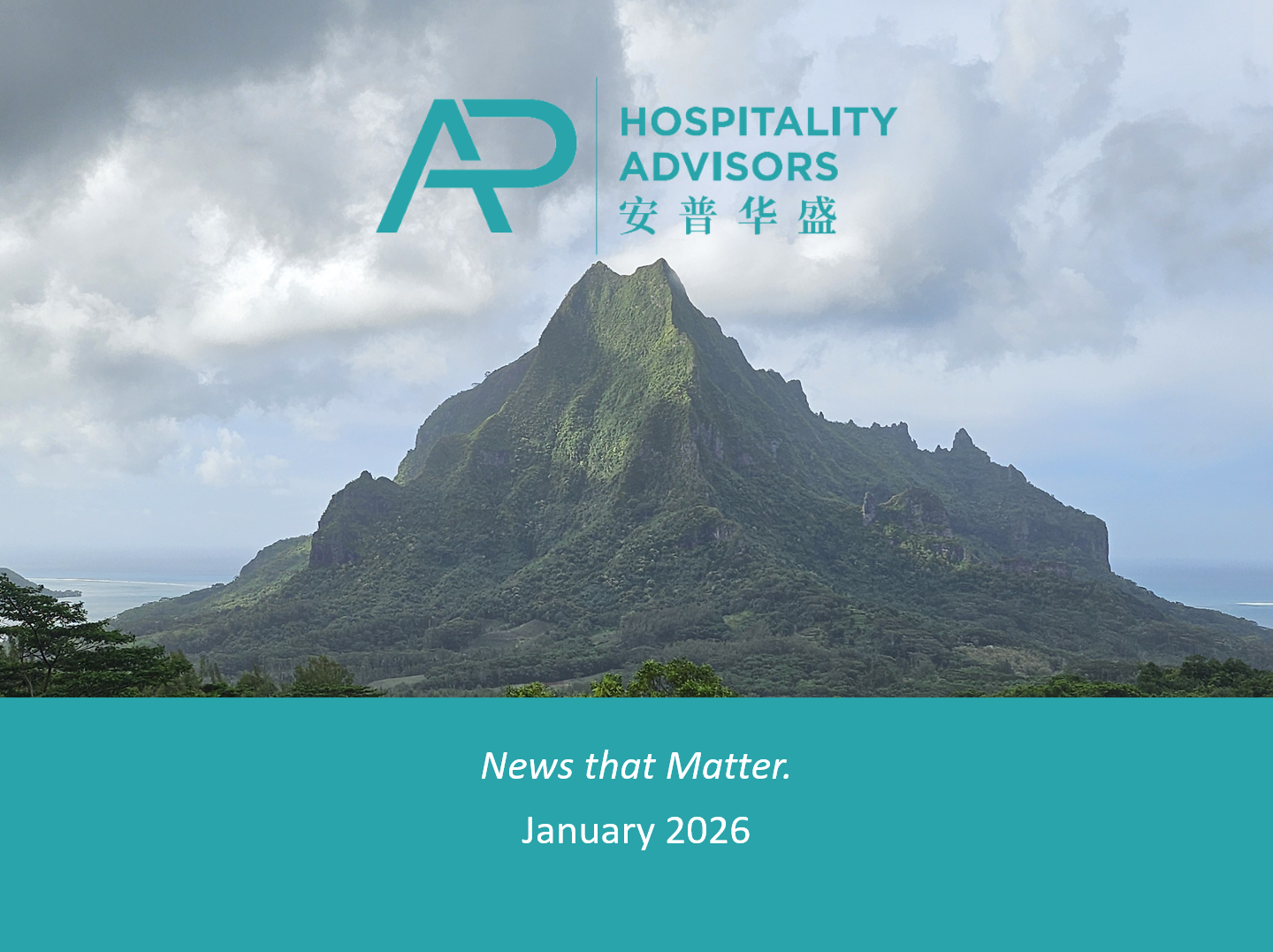AP Hospitality Bulletin Asia Pacific - November 2024
by

Transactions that Matter.
1. Grand Nikko Tokyo Daiba, Japan
- TPG Angelo Gordon partnered with Kenedix to acquire the 884-key Grand Nikko Tokyo Daiba from Hulic Co. for JPY106 billion ($735 million) or $831,200 per key. Opened in 1998 and renovated in 2021, the property features one of the largest ballrooms in Japan as well as various sizes of banquet rooms. The property enjoys its great location on Odaiba, an artificial island in Tokyo Bay, and sits within a 20-min drive to Haneda Airport and 90-min to Narita Airport.
- With direct access to Odaiba Station and within short walking distance to Tokyo Teleport Station, the hotel will benefit from the extension of the Haneda Airport Access Line within the next few years. An increasing number of cruises at Tokyo cruise terminal along with the recent launch of Disney-branded cruises is likely to boost the hotel business in the Daiba area in the future.
2. Hyatt Regency Sukhumvit, Thailand
- Located along Sukhumvit Road with direct access to Nana BTS station, the 273-key Hyatt Regency Sukhumvit is sold to Grand Residence International Company Limited from Grande Asset Hotels, a subsidiary of Thailand-based Property Perfect Pcl., for 5.055 billion baht ($`149.4 million) or 18.5 million baht ($547,200) per key. The sale marks the largest single-asset hotel sale in Thailand to date. Opened in late 2018, the property is part of a mixed-use development, and features three food & beverage outlets, 1,359-sqm meeting space and various recreational facilities. With direct access to public transport and a 40-min drive to the airports, the hotel is popular among business and leisure travellers.
- The proceeds from the sale are reportedly used to repay loans and debentures, significantly reducing the seller’s debt burden and interest expenses. After the sale, Grande Asset Hotels still has four hotels, including the Royal Orchid Sheraton Hotel, The Westin Grande Sukhumvit, Sheraton Hua Hin Resort & Spa, and Sheraton Hua Hin Pranburi Villas, and three residential projects in its portfolio.
3. Fraser Place Robertson Walk and Concorde Hotel, Singapore
- Frasers Property formed a joint venture with Japanese developer Sekisui House for the redevelopment of the 164-key Fraser Place Robertson Walk and its adjoining commercial area under a 999-year lease. The existing properties will be demolished in 2025 and redeveloped into a mixed-use project with 348 luxury residential units for sale.
- Luxury Peak Pte Ltd, a subsidiary of Hotel Properties Ltd (“HPL”) acquired the Concorde Hotel en bloc for S$821 million ($609 million). Sitting in Orchard Road, the premium shopping district of Singapore, the three-story retail space houses a diverse mix of retailers, dining and entertainment options. The sale price translates to about $1,804 per square foot per plot ratio, including a $213 million payment to add a fresh 99 years to the existing land lease on a redevelopment scheme comprising 40% hotel, 40% residential and 20% commercial use.

Deal Watch
- Hong Kong-based Gale Well Group puts its 98-key boutique hotel at Causeway Bay for sale. Previously operated as Butterfly on Morrison, the property has been operated as a government-funded Youth Hub providing 184 affordable living space since March 2023. The market value is about HKD630 million, significantly lower than its last transaction price at HKD880 million in 2016. As the demand for student housing remains high, the property is likely to be repurposed in the future.
- Chinese developer Country Garden Holdings now puts its 600-key Hilton Foshan in the market for RMB1.5 billion. Due to the changing market situation, Country Garden Holdings started to offload its hotel assets in 2019, and Hilton Foshan was priced at RMB 1.5 million back in 2020. Opened in 2014, the hotel is part of a mixed-use development project and recorded a profit in the next year.
News that Maters.
1. Mainland China
- China recently expanded its visa-free travel policy for passport holders from nine countries, including Romania, Croatia, and Japan. This year, China started to ease visa requirements for EU passports and several Asian countries, and the policy successfully boosted the number of foreign visitors. According to the data from China Immigration, over 8 million visitors were recorded in the first three quarters of 2024, about 60% benefiting from the visa-free policy. It is also reported that visitors from Europe surpassed the levels in 2019.
- Domestic travel has become more common and popular in mainland China, particularly in non-tier-1 cities. Travellers are now looking for authentic experiences during their holidays, and many young travellers would prefer more affordable destinations in the country instead of overseas destinations. The “blind box” tours to mystery destinations are also popular on OTAs to cater to the changing travel behaviour in China.
2. Hong Kong SAR
- Hong Kong welcomed over 3 million visitors in September 2024, about 65% of the levels in 2018. Mainland China remained the largest feeder market, accounting for 75% of the total visitors, followed by Taiwan, the Philippines, and the USA. The slow recovery of Hong Kong’s tourism also has an impact on its retail industry, as Chinese travellers spend about 30% less than in the pre-pandemic era, according to a report by the Legislative Council. In contrast, long-haul travellers registered a 20% increase in spending, yet they only account for less than 10% of the total visitors to Hong Kong.
- The government plans to grow the city’s cruise tourism, as a total of 30 cruise companies include Hong Kong in their routes, bringing about 330,000 non-local cruise passengers to Hong Kong. Additionally, cruise passengers from mainland China are now allowed to cross the border for cruise tours with ease. However, the accessibility to Kai Tak Cruise Terminal mainly relied on taxis and bus, resulting in long queues and inconvenience for large groups of passengers.
3. Macau SAR
- Macau recorded 2.5 million visitors in September, reaching a 91% recovery from the 2019 figure. Mainland China remained the largest source market, accounting for 69% of total visitors to Macau. The gross gaming revenue reached 20.7 billion in October, the highest record since 2020. Mr Sum, the Chief Executive-elect of Macau, announced that he will continue to strengthen Macau’s economic diversification in his five-year term, including diverse tourism offerings beyond gambling.
- Macau also saw changes in visitors’ spending, and its non-gaming visitor per-capita spending fell to MOP 2,168 ($272), a 17% y-o-y decrease in the first three quarters. Shopping is reportedly to be the main spending category with 45.6%, followed by 25.5% on accommodations, and 20.8% on food & beverage. In terms of spending by purpose of visit, travelling for shows and MICE recorded MOP5,211 and MOP4,439 per capita, respectively.
Tourism Recovery in Asia Pacific

Subscribe to our newsletter
Stay up-to-date with industry news, publications and announcements from our firm.








